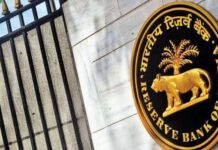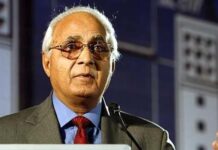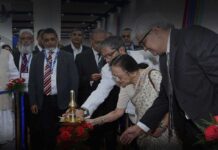A verbal rage was witnessed at the Allahabad High Court recently after the court summoned a judicial officer for not having registered a case between two Muslim parties under the Hindu Marriage Act. The incident dates to November, 18 and the conduct of the judicial officer, has attracted much statutory violation, to say the lease. The incident involves the principal judge of the Sultanpur district, one Manoj Kumar Shukla. He is a judicial officer in the rank of a district judge and has been asked to appear for a case of 2015, where he passed the order. In the case of Mohd. Irshad v. Smt. Anjum Bano, as per the order of the said judge was registered under the Hindu Marriage Act, under original suit no. 85 of 2014.
The summon was issued by a division bench of Allahabad High Court consisting of Justices Anil Kumar and Saurabh Lavania. Shukla deposed before the said bench saying that at the time of passing of the order in 2015, he was not appointed as the principal judge of Sultanpur. On a perusal of the Allahabad High Court website, it can be inferred that at that point of time, Shukla was serving as the additional district and session’s judge in Jalun. His tenure started on September 16, 2014, and was up till May 08, 2017.
‘Summons is unnecessarily called’, says Shukla
On enquiry by the division bench as to who was the principal judge holding the said office, the first blow came from Shukla. In his discourse, he said he was ‘unnecessarily called’ and also alleged that the summons was in contradiction to the directives of the Supreme Court laid in this regard. He did not stop and went in defence, saying that such mistakes are committed by judicial officers, because of heavy workload in the Family court. He also highlighted another cause for such error, blaming it on the provision of only one stenographer of judgment writer, for noting down the judgments.
Though the High Court acknowledged the points put forth by Shukla, he was duty-bound to pass the correct order under the right law. Shukla did not stop and was seen shouting very loudly in court. Shukla then revealed that this was not the first instance of summons being issued to him. He said he was summoned on an earlier occasion by a bench of the High Court consisting of Justice Mateen and Justice Upadhyay. As per the report, the court interrupted Shukla and requested him to address the said Justices with due respect. However, despite many warning, Shukla continued in his tone, refusing to acknowledge the normal functioning of the court. To an extent, that he said ‘I do not care about anything’, as quoted. He boasted about how he cleared the Uttar Pradesh Public Services Commission, to get appointed in the state judicial services. As per records, he has served in the judiciary since 1996, awaiting retirement in the year 2025. The division bench did not think highly of how Shukla behaved and have ordered to place the said matter before the Chief Justice of the Allahabad High Court.
Professional Ethics and the Judiciary:
There is enough literature on professional ethics of the lawyers and judges, belonging to what is often called a ‘noble profession’. Enough has been written and spoken about the exercise of restraint that judges are required to possess in deciding cases. Therefore, on a very superficial analysis, it becomes clear that the conduct of Shukla is a misdemeanour and flouting of basic judicial ethics. In 1997, the Supreme Court and all high courts barring the Gujarat High Court adopted a 16 point code relating to the conduct of the judge. A committee drafted the same, appointed for the said purpose and comprising of five senior judges. The 16 point code is often referred to by the judges as “The Restatement of Values of Judicial Life” has been operative since its adoption. Justice Dr.A.S.Anand headed the committee responsible for the drafting of the code and comprised of Justice S.P.Barucha, Justice K.S.Paripoornan, Justice M.Srinivasan and Justice D.P.Mohapatra.
“When we talk of ethics, the judges normally comment upon ethics among politicians, students & professors & others. But I would say that for a judge too, ethics, not only constitutional morality but even ethical morality, should be the base”, once said Justice S.H. Kapadia.
Amidst the other points laid in the code, point number 16 emphasises on the conduct of the judge. It reads that every judge must, at all times, ‘be conscious that he is under the public gaze’. It further states that no act or omission should have been committed by the judge so that he is ‘unbecoming of the high office he occupies’ and impair the ‘public esteem in which the office is held’. The said code seems relevant to the conduct of Shukla, as it was in the Allahabad High Court.
















































